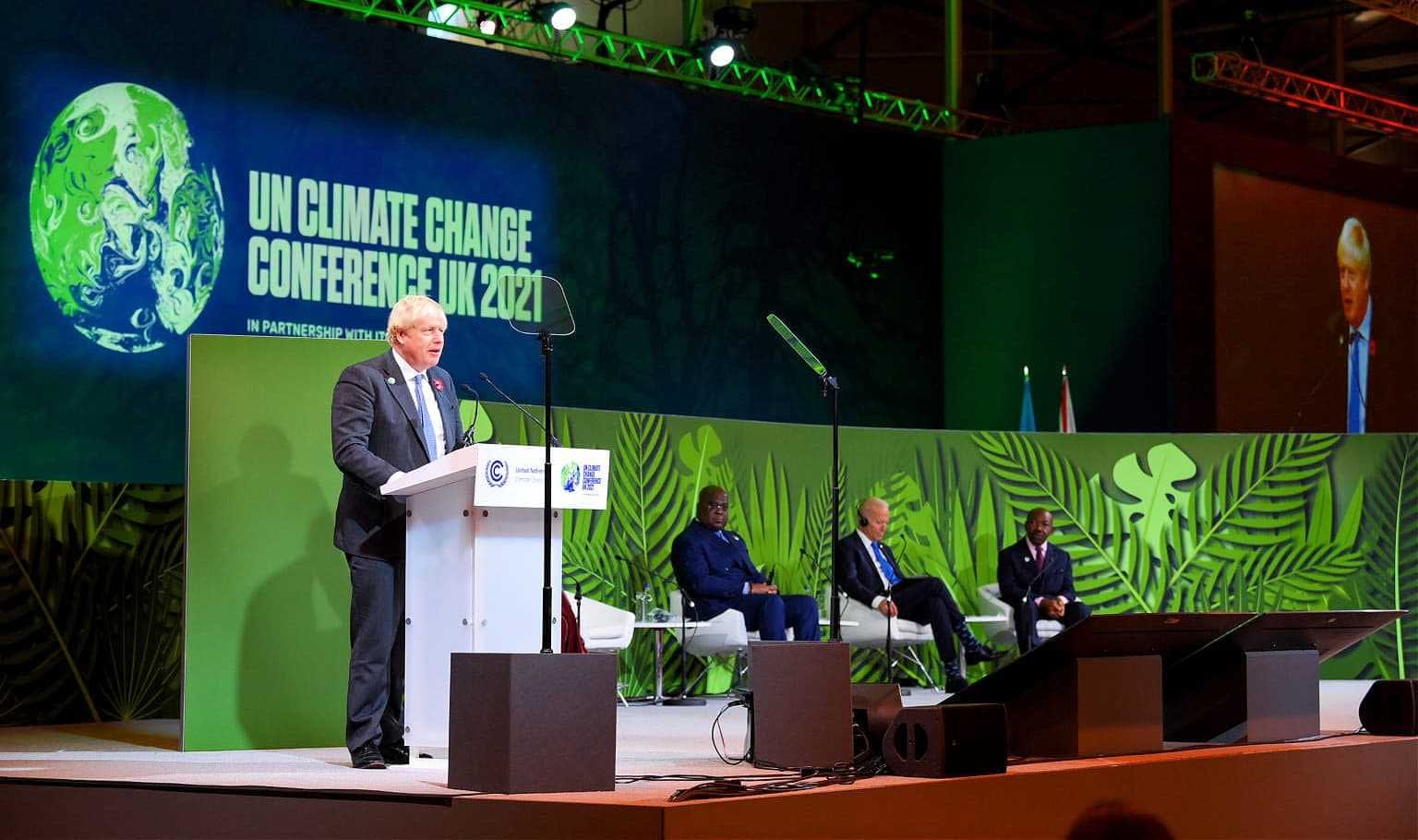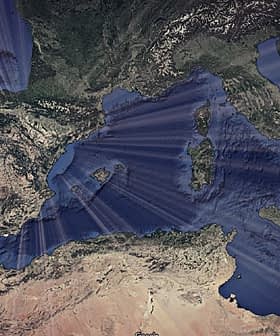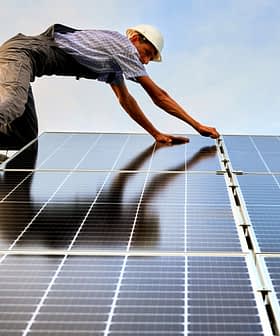COP26 Concludes with Watered-Down Joint Agreement
The nearly 200 countries that signed the Glasgow Climate Pact agreed to reduce greenhouse gas emissions and phase down coal. Critics say not enough was accomplished.
 Photo: COP26
Photo: COP26 COP26 ended with the Glasgow Climate Pact, in which almost 200 countries agreed to work on reducing their greenhouse gas emissions and phasing down coal use. The pact also included plans to review national climate change plans annually, increase funding for developing countries, and continue working towards the 1.5 ºC target set by the Paris Agreement.
COP26, the international summit on climate change ended with the Glasgow Climate Pact, an agreement signed by almost 200 countries.
If the world is going to beat back the climate crisis, no one can sit on the sidelines.
The key point of the final text is that all countries will work to bring down their own greenhouse gas emissions. They also will reinforce their previously announced plans to achieve significant reductions by 2030.
One of the biggest issues on the table, the destiny of coal, was not fully resolved. In the first drafts of the agreement, the text asked countries to phase out coal.
See Also:World Leaders Pledge Billions to Restore Earth’s ForestsHowever, significant pressure from Australia, China, India and other countries where coal remains a major economic resource led “phase out” to be replaced with “phase down” in the final text. Although, all the countries agreed to reduce their reliance on coal.
They also agreed to speed up the end of the fossil fuel subsidies which were described as one of the major hurdles facing the development of renewable energies.
According to the pact, national plans to curtail the most relevant contributions to global warming will be reviewed every year instead of the previously-agreed interval of every five years.
The annual review of the national plans to act on climate change means that the signing countries have not yet given up on keeping global temperatures below 1.5 ºC above pre-industrial levels.
Agreeing to cap rising global temperatures at 1.5 ºC was one of the key tenants of the Paris Agreement and is considered by scientists as the threshold above which the worst consequences of climate change would become irreversible.
However, that target is currently not being met by the national climate plans that were presented and discussed at the global summit.
According to most observatories, current actions meant to slow down global warming are projected to see temperatures rise by 2.4 °C by the century, which is less than the 2.7 °C forecasted before COP26, but still greatly exceeds the Paris Agreement target.
The new plans that will be presented in the coming year will also have to focus on reducing emissions in line with the 1.5 °C target.
“That means those governments who fall short will have to justify why to their citizens,” the New Scientist observed. “Australia, Brazil and Indonesia are among many countries whose existing plans are inadequate and will need to be strengthened.”
The final text of the Glasgow Climate Pact also urges developed countries and historic polluters to come good on their previous pledge to provide $100 billion (€87 billion) per annum to developing countries.
The funds, which have not yet been provided by the wealthier countries, would be used to help develop environmentally sustainable economies and help countries that are most strongly affected by the consequences of climate change to adapt.

UK Prime Minister Boris Johnson spoke at COP26
Despite its critics and shortcoming, COP26 President Alok Sharma hailed the pact as a “historic achievement.”
“We kept the 1.5 °C target within reach. We closed off the Paris Agreement, which for six years had eluded the world,” he told the BBC. “We’ve ensured more money for climate-vulnerable countries. I think we can say we are on the way to consigning coal to history.”
“The train is moving and all countries need to get on board,” added Ani Dasgupta, president of the World Resources Institute. “If the world is going to beat back the climate crisis, no one can sit on the sidelines.”
See Also:Climate Change CoverageMany others among the COP26 parties also reacted positively to the news of the agreement.
U.K. Prime Minister Boris Johnson welcomed the pact as “a big step forward,” while Switzerland expressed “profound disappointment” in relation to the limited commitment on coal.
Shauna Aminath, environment minister of the Maldives, an archipelago in the Indian Ocean, expressed concerns similar to those of many island nations that are currently threatened by rising sea levels.
“The pact is not in line with the urgency and scale required,” she said. “What looks balanced and pragmatic to other parties will not help the Maldives adapt in time. It will be too late for the Maldives.”
Her counterpart in Madagascar, Vahinala Raharinirina, added that “developing countries played the game in order to not stop the process. But let’s say there is a disappointment because of this question of climate finance to help us to adapt. Let’s say, it was forgotten.”
However, the pact was welcomed by the European Commission, which said the global community continues to move in the right direction but added there was still plenty of hard work ahead.
“We have made progress on the three objectives we set at the start of COP26,” said Commission President Ursula von der Leyen. “First, to get commitments to cut emissions to keep within reach of the global warming limit of 1.5 ºC. Second, to reach the target of $100 billion per year of climate finance to developing and vulnerable countries.”
“And third, to get agreement on the Paris rulebook,” she added. “This gives us confidence that we can provide a safe and prosperous space for humanity on this planet. But there will be no time to relax: there is still hard work ahead.”
According to the United Nations’ executive secretary Patricia Espinosa, the pact is a “very complete package of decisions,” which could keep the world on track with the Paris Agreement targets.
Still, she warned that “this decade is absolutely crucial. We need to get to 2030 with at least 45 percent reductions.”
Share this article









